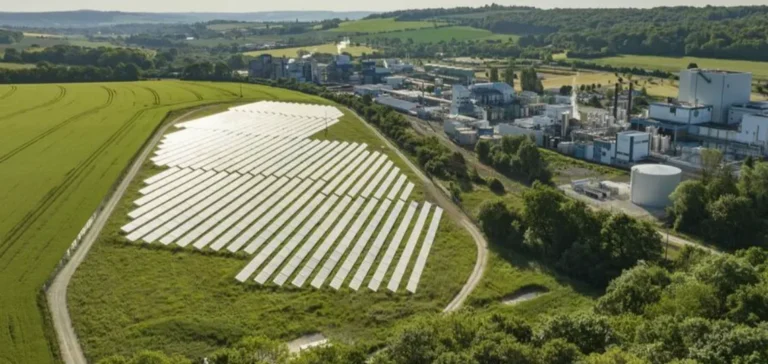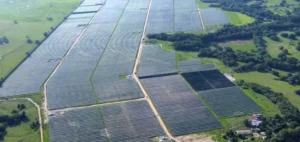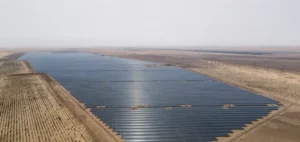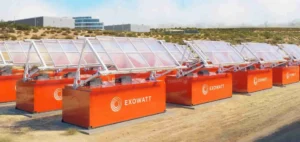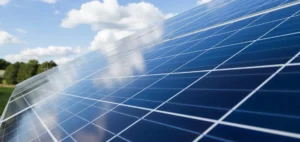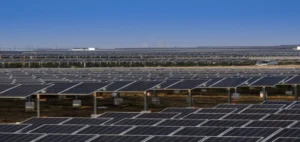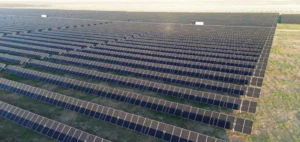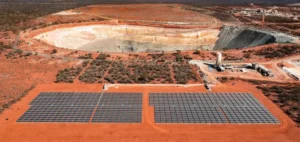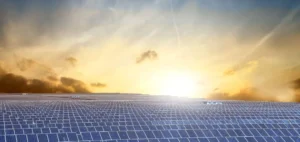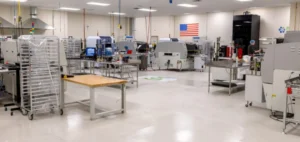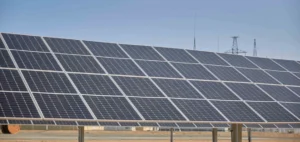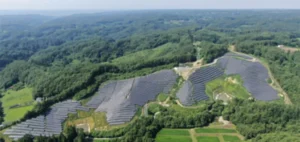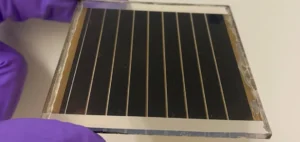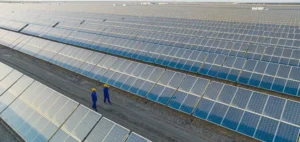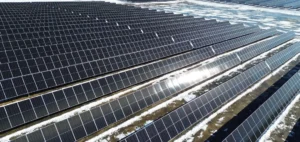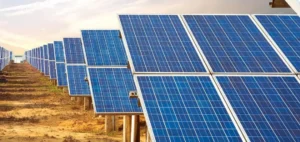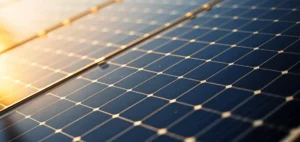Newheat has commissioned a solar thermal plant specifically designed for the agricultural operation Les Tomates d’Auïtou, located in Rosiers-d’Égletons, Corrèze. The facility, with a capacity of 5.6 MWc, is equipped with 7,091 m² of solar thermal collectors installed on adjacent embankment land. It will cover around 14% of the site’s annual thermal needs, equivalent to 5,400 MWh per year.
This project marks Newheat’s first solar thermal deployment for heated greenhouses and the company’s seventh installation overall. In addition to waste heat recovered from the nearby Energy Recovery Unit (Unité de Valorisation Énergétique, UVE), the plant increases the share of renewable heat used to 98% for the site’s eco-greenhouses.
A rapid construction for a fully integrated system
The facility, integrated into the site’s existing heating infrastructure, also includes a 1,500 m³ thermal storage tank. Built within just three months, the project was tailored to the specific needs of greenhouse-based farming, with an automated energy management system. This technology enables real-time coordination of solar production with greenhouse heating demand and the availability of waste heat.
Newheat will provide maintenance and system optimisation over a two-year period to ensure the plant’s operational performance. Designed to be replicable, the model targets other heated greenhouse crops such as cucumbers, strawberries and vanilla.
Public funding and profitability targets
The total investment for the project exceeds €3.7mn ($3.94mn), with nearly €1.9mn ($2.02mn) in support from the French Agency for Ecological Transition (ADEME) via the Heat Fund. The scheme supports the rollout of large-scale solar thermal facilities across France. The installation helps the operator mitigate reliance on propane — a volatile, imported energy source — by replacing it with a local and manageable heat supply.
Productivity gains and lower carbon impact
The solar contribution will raise target temperatures in winter and shoulder seasons, supporting yield increases of between 12 and 25%. Historically capped at 40 kg/m², the site’s projected output is expected to reach 45 to 50 kg/m². Over a 20-year period, the system is estimated to avoid 28,000 tonnes of CO₂ emissions.
Les Tomates d’Auïtou, already 100% self-sufficient in water and 71% in electricity thanks to two photovoltaic plants, further reinforces its energy independence. The operation aims to maintain year-round production in a region not suited to open-field agriculture.


